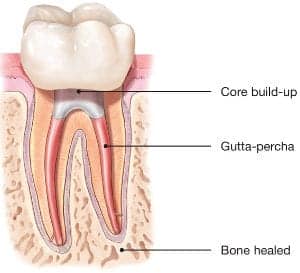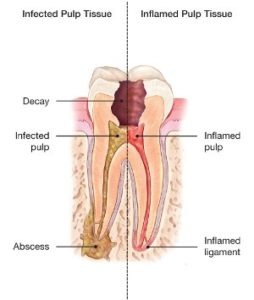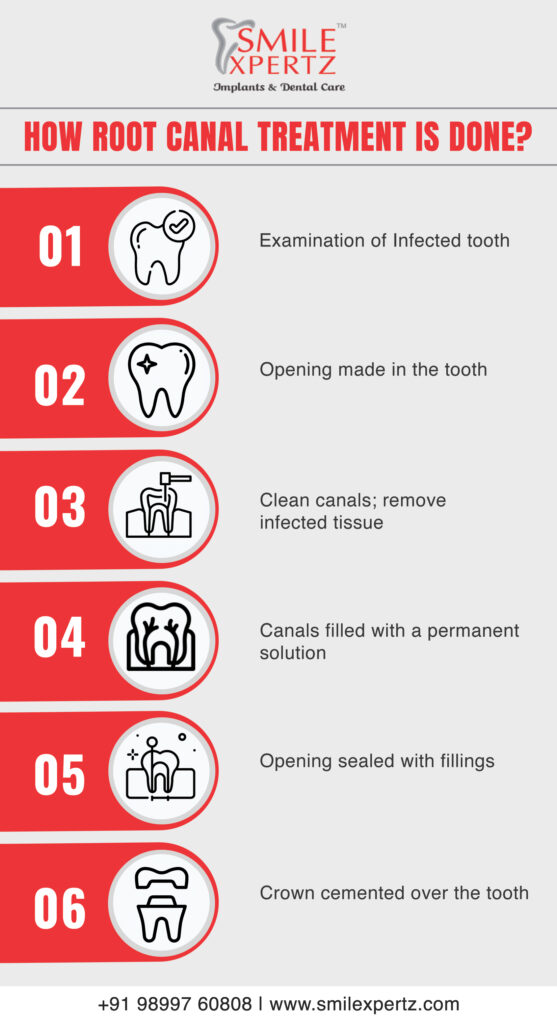In “Myths About Root Canals,” you’ll uncover the truth behind common misconceptions surrounding this dental procedure. Root canals have a reputation for being painful and uncomfortable, but this article will set the record straight. It explains what a root canal is, the reasons for needing one, and the benefits of the procedure. Discover how a root canal treatment can save your natural tooth and alleviate pain, allowing you to chew, bite, and smile with ease. Don’t let myths prevent you from seeking the dental care you need – read on to dispel any concerns and gain a better understanding of root canals.
Introduction
Root canals are a dental procedure that often gets a bad reputation. However, many of the myths surrounding root canals are simply not true. In this article, we will debunk some common myths about root canals and provide you with accurate information so that you can make informed decisions about your dental health.
Myth: Root canals are extremely painful
One of the most common myths about root canals is that they are extremely painful. This misconception may have stemmed from old sayings or outdated experiences. However, the reality is that modern dentistry has made significant advancements in pain management. During a root canal procedure, local anesthesia is used to numb the area, ensuring that you don’t feel any pain. Your dentist or endodontist will make sure you are comfortable throughout the entire procedure.
It is important to note that some soreness and discomfort after the procedure are normal. This is because the body needs time to heal. However, any discomfort can usually be managed with over-the-counter pain medication and will subside within a few days.

This image is property of www.aae.org.
Myth: Root canals cause illness
Another common myth is that root canals can cause illness. This misconception may have originated from anecdotal stories or misinformation. However, there is no scientific evidence to support the claim that root canals cause illness.
In reality, root canals are performed to remove inflamed or infected pulp from inside the tooth. The procedure is designed to eliminate bacteria and prevent reinfection, ultimately saving the natural tooth. It is the infection in the tooth that can cause illness, not the root canal procedure itself.
Myth: Extraction is always a better option
Some people believe that extraction is always a better option than undergoing a root canal. While extraction may be necessary in certain cases, preserving the natural tooth whenever possible is generally more beneficial.
By saving the natural tooth through root canal treatment, you can maintain efficient chewing, normal biting force and sensation, and a natural appearance. Extraction may lead to other dental problems, such as shifting of teeth and bone loss. Additionally, replacement options after extraction, such as dental implants or bridges, can be more costly.
It is important to consult with your dentist or endodontist to determine the best course of action for your specific dental situation.

This image is property of www.aae.org.
Myth: Root canals take a long time to recover from
Another myth about root canals is that they take a long time to recover from. While every individual’s healing process may vary, it is important to note that most patients can return to their normal activities shortly after the procedure.
You may experience numbness in the treated area for a few hours, but this is temporary and will subside. It is generally advised to avoid eating until the numbness has completely worn off to prevent accidentally biting your tongue or cheek.
Complete recovery from a root canal procedure may take a few days, during which you may experience some soreness and discomfort. However, any discomfort can be managed with over-the-counter pain medication, and you should start feeling better soon.
Myth: Root canals are only for old people
Contrary to popular belief, root canals are not only reserved for older individuals. Root canals can be performed on people of all ages, including children and young adults.
Tooth infections or damage can occur at any age, and root canals are a common treatment option to save the natural tooth. It is important to seek dental care as soon as you experience any tooth pain or sensitivity, regardless of your age.

This image is property of images.squarespace-cdn.com.
Myth: Root canals weaken the tooth
One misconception about root canals is that they weaken the tooth. However, the reality is that root canals do not weaken the tooth. In fact, they can strengthen it.
During a root canal procedure, the infected or damaged pulp is removed from the inside of the tooth. The tooth is then carefully cleaned and disinfected before being filled and sealed. In some cases, a crown may be placed on top of the tooth for additional protection and strength.
By removing the infection and preserving the natural tooth, root canals can help maintain the structural integrity of the tooth and prevent further damage.
Myth: Root canals can spread infection
Contrary to popular belief, root canals actually remove infection from the tooth. The procedure involves removing the inflamed or infected pulp inside the tooth, cleaning and disinfecting the area, and sealing it to prevent reinfection.
Proper disinfection and sealing techniques prevent the spread of infection. However, it is important to note that if an infection is left untreated, it can spread to other areas of the body. This is why it is essential to seek proper dental care and address tooth infections promptly.

This image is property of www.nsbendo.com.
Myth: Root canals are expensive
Another myth about root canals is that they are expensive. While the cost of a root canal may vary depending on the complexity and location of the problem tooth, most dental insurance policies provide coverage for endodontic treatment.
It is also important to consider the long-term costs of extraction and tooth replacement options. Extracted teeth often require replacement with dental implants or bridges, which can be more costly than root canal treatment and the appropriate restoration.
It is best to consult with your dentist or endodontist to discuss the cost of a root canal procedure and explore available insurance coverage or financing options.
Myth: Root canals always require a crown
While it is true that some root canal procedures may require the placement of a crown, not all root canals necessitate this additional step. Whether or not a crown is needed depends on the condition of the treated tooth.
In some cases, a tooth may be able to function properly without a crown after root canal treatment. However, your dentist or endodontist will assess your specific situation and recommend the appropriate follow-up care, which may include a crown for additional protection.
It is important to follow your dentist’s or endodontist’s instructions and recommendations to ensure the best possible outcome for your treated tooth.

This image is property of www.smilexpertz.com.
Conclusion
Root canals are often misunderstood and surrounded by myths. However, it is important to separate fact from fiction when it comes to dental procedures. Root canals are not extremely painful, do not cause illness, and are not only for old people. They do not weaken the tooth, spread infection, or necessarily require a crown. Recovery from a root canal is typically quick, and preserving the natural tooth through root canal treatment has many advantages.
If you have any concerns or questions about root canals, it is best to consult with your dentist or endodontist. They can provide you with accurate information and guide you through the process, ensuring that you receive the best possible treatment for your dental health. Remember, root canals are a valuable dental procedure that can save your natural tooth and restore your oral health.


